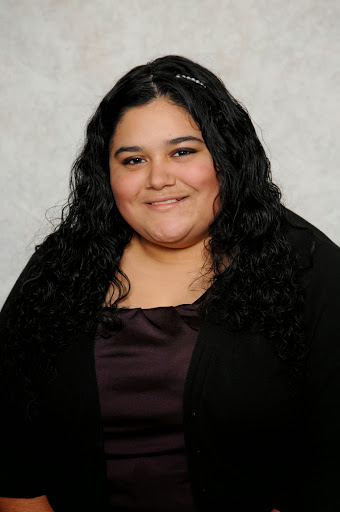Ashbrook Senior Thesis: The New World's Republican Experiments
December 24, 2020

This month in the Ashbrook Center, seniors have been defending their theses. We interviewed two students whose work demonstrates the seriousness of this culminating project in the Ashbrook Scholar program. Today, we focus on Johanna Mateo, who came to Ashland from Chelsea, Massachusetts.

A study of Latin American attempts to establish democracy, Mateo’s thesis is titled “Rumination Before Revolution: The New World’s Republican Experiments.” Mateo spent her childhood in Honduras, having moved with her family to the US when she was 13 years old.
Why did you choose this topic?
I have wondered about the instability of Latin American republics and their vulnerability to dictators. The mainstream argument explaining this is Marxist—it blames U.S. economic power and political intervention for Latin American failures of government. I never agreed with that view, and I wanted to look for other reasons why, unlike the United States, Latin America has not been able to sustain successful republics.
Why were you suspicious of the Marxist argument?
I’ve come to think that the way a people view the purpose of government is critical to their success at it. In the US, even when people are upset with government, they know that its job is to protect their rights. In Latin America, government is often seen as a force against individual rights, an evil people must struggle against.
At the time the first Latin American attempts to form republican governments occurred, was the US in a position to put political or economic pressure on these countries?
I don’t believe so. Actually, the new Latin American republics of the 19th century were looking for support from the US, but the US was hesitant to provide direct aid. We saw our role rather as providing a model for these new republics. Besides, not all Latin American countries who achieved independence opted for republicanism. Mexico, for example, installed a monarchy after gaining independence in 1821, and that government had to fail before they experimented with the republican model.
What factors did you study to explain the difference between the US and Latin American republics?
I looked at the questions debated at the time these republics formed. When the US was founded, its citizens had been debating for 150 years such questions as “What is the purpose of government? How do you rule justly?” In contrast, Latin Americans were consumed with the question of “Who gets to rule?” In most Latin American states, the two groups leading the revolutions and contesting for power were first generation Spanish immigrants to America and Spanish people born in America. Indigenous people or those of mixed blood were not invited into the government. So the new Latin American republics protected the privileges of those with European heritage. I did not find many primary documents from Latin American that considered the purposes of government. Most new republics wrote declarations of independence that imitated the US model, but they were not backed by prior thinking.
What other advantages did the former British colonists have going for them that colonists in Latin America did not?
They had experienced self-government in their colonies. The British had allowed them a certain amount of autonomy and they had established representative legislative bodies.
Do you see hope for Latin American republics in the future?
I do. In Latin America, the problem is that people have not considered the right questions: why liberty, equality, and government by consent are fundamental to justice. If Latin Americans would commit to thinking about those things, instead of being ruled by the passions that arise from resentment at being ruled unjustly, they would be less vulnerable to demagogues who turn despotic. They could progress.
Did you enjoy the process of defending your thesis?
It was the most fun, and the most satisfying, experience I’ve had in the four years that I’ve studied here! I was very nervous at first, seeing professors I respect and admire seated and ready to listen to me. They did ask hard questions, but always with the intent of opening up an interesting conversation. At the end, I had more questions than answers about my topic; and this was a good feeling. It showed me that there is much more work to do to understand this issue.

